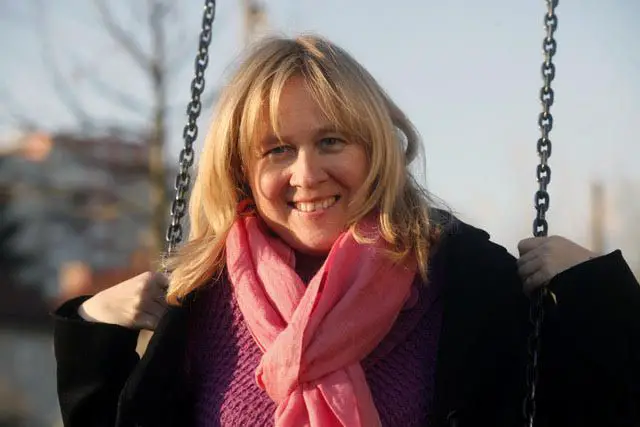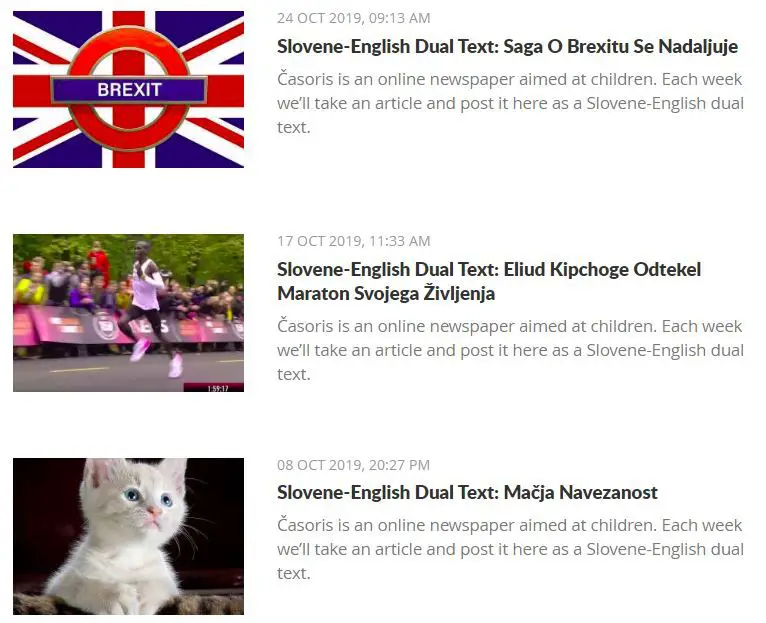EU Commission downgrades Slovenia's 2019 growth forecast
BRUSSELS, Belgium - The European Commission forecast that Slovenia's economy will grow by 2.6% GDP in 2019 and 2.7% in 2020 and 2021, a downgrade of 0.6 and 0.1 percentage points respectively compared to its spring forecast. "Growth is cooling down but remaining robust," the Commission said. Domestic demand is expected to remain strong. The government budget balance is forecast to remain in surplus, with a slightly improving structural balance position in the coming years after a deterioration this year.
President Pahor concludes state visit to Norway
OSLO, Norway - President Borut Pahor completed his state visit to Norway which also featured a business conference at research organisation SINTEF, where Slovenia's Jožef Stefan Institute and SINTEF signed a memorandum of understanding on cooperation. Pahor was received by King Harald V on Thursday and met top Norwegian officials, including Prime Minister Erna Solberg, with whom he highlighted the excellent bilateral relations and shared views on a number of global challenges. They noted potential to deepen cooperation in circular economy, environmental technology, AI, robotics, ICT and tourism.
Cerar makes official visit to Jordan
AMMAN, Jordan - Foreign Minister Miro Cerar started an official visit to Jordan by meeting the country's senior officials, including his counterpart Ayman Safadi. The first such visit in almost two decades is designed to boost bilateral political and business links. According the Foreign Ministry, Cerar and Safadi talked about the combat against terrorism, development aid, the countries' cooperation in the Union for the Mediterranean and the situation in Syria. Cerar also met Minister of Industry, Trade and Supply Tariq Hammouri, Tourism Minister Majd Mohammad Shweike and speakers of both houses of parliament.
Analysts say not much will change after Left-government rift
LJUBLJANA - Political analysts Andraž Zorko and Alem Maksuti share the view that the formal parting of ways between the minority government and the Left does not change the situation in any significant way. The Left will continue playing a similar role, while the government will still seek support in the opposition, albeit possibly in an informal manner. Šarec is expected to accept offers of cooperation mainly from the opposition SNS or NSi.
Slovenian business delegation visiting Vietnam
HANOI, Vietnam - A Slovenian government and business delegation led by Economy Minister Zdravko Počivalšek started a two-day visit to Vietnam after visiting China. In Hanoi, the delegation will participate in the second meeting of the intergovernmental commission for economic cooperation and in a Slovenia-Vietnam business forum. Bilateral meetings are planned with Vietnam's Minister of Industry and Trade Tran Tuan Anh and Foreign Minister Pham Binh Minh.
Slovenia regrets US exit from Paris climate accord
LJUBLJANA - The Foreign Ministry expressed regret over the US formally pulling out of the Paris Agreement, highlighting that the climate accord represented a historical agreement which globally opened up a new platform for promoting sustainable development. "Climate change is global and does not spare any country or region, same as no country can tackle it alone or for its neighbours. Hence countries are requesting more comprehensive and global solutions which are only viable through a joint effort," the ministry said.
Defence minister says Slovenia not buying Valuk APCs
LJUBLJANA - Defence Minister Karl Erjavec denied Slovenia intended to buy more than a dozen Valuk 6x6 armoured personnel carriers (APCs) at a session of the parliamentary Defence Committee. The session was called by the opposition Left after defence officials said funds had been earmarked for the purchase in the 2020 and 2021 budgets. Erjavec said the ministry was not in the process of buying Valuk APCs, as these had been discontinued and had not been available for purchase for years.
MPs told police handling migration well
LJUBLJANA - The parliamentary Home Policy Committee debated illegal migration, with police representatives assuring the MPs that the situation was under control and that there was no need for time being to provide members of the Slovenian Armed Forces with additional powers to help the police control the border. A total of 13,832 illegal crossings were recorded by the end of October, up 69% year-on-year. Most illegal migrants (9,442) were returned to neighbouring countries, mostly to Croatia.
Govt urged to prevent political meddling in companies
LJUBLJANA - The opposition-dominated parliamentary Public Finance Oversight Commission issued several recommendations to the government to prevent political interference in state-owned companies as it debated the controversial resignation of the management of energy company Petrol. The commission urged the government to prevent any interference of political interests in staffing or decision-making in state enterprises, resume privatisation and apply OECD principles of corporate governance.
Bad bank reportedly pitching new flag carrier to Adria pilots
LJUBLJANA - The national radio station reported that Bank Assets Management Company (BAMC) had presented to former Adria Airways pilots a business plan for a potential new flag carrier. Citing unofficial sources, the report said that the carrier would have five Canadair aircraft and 200 employees. A EUR 200 million loss was expected in the first year after incorporation. BAMC denied presenting any such financial estimates or business plan.
Telekom Slovenije operating profit up 29% in first nine months
LJUBLJANA - The Telekom Slovenije group posted a net profit of EUR 29.4 million in the first nine months, a 25% increase year-on-year despite a 6% drop in net sales revenue, which stood at EUR 507.4 million. The company said sales revenue was down due to the sale of Blicnet, which was completed in the second half of 2018. Excluding the operations of Blicnet, net sales revenue was down 4% on the same period in 2018. EBITDA rose 9% to EUR 166.2 million and EBIT was up 29% to EUR 35.9 million.
Intra Lighting wins Delo Business Star award
BRDO PRI KRANJU - Intra Lighting, a family-run business providing architectural luminaires and smart lighting solutions, won the third iteration of the Delo Business Star award, presented by the newspaper publisher in Brdo pri Kranju. The company from Miren near Nova Gorica on the border with Italy is owned by family Furlan. It generates 88% of its sales abroad. Between 2015 and 2018, its net profit increased from EUR 140,000 to EUR 3.1 million.
Star choreographer Clug nominated for German award
LJUBLJANA - Edward Clug, a choreographer and the artistic director of the acclaimed SNG Maribor Ballet company, has been nominated for the prestigious German theatre prize Der Faust in the best 2019 choreography category for his production Patterns in 3/4. Clug is one of the three nominees competing for the prize in this section. The winners of all eight categories will be announced at a ceremony in Kassel on Saturday.






